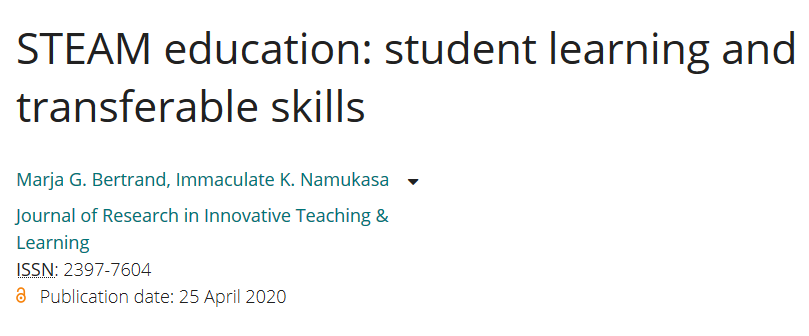Abstract
Purpose
Globally, interdisciplinary and transdisciplinary learning in schools has become an increasingly popular and growing area of interest for educational reform. This prompts discussions about Science, Technology, Engineering, Arts and Mathematics (STEAM), which is shifting educational paradigms toward art integration in science, technology, engineering and mathematics (STEM) subjects. Authentic tasks (i.e. real-world problems) address complex or multistep questions and offer opportunities to integrate disciplines across science and arts, such as in STEAM. The main purpose of this study is to better understand the STEAM instructional programs and student learning offered by nonprofit organizations and by publicly funded schools in Ontario, Canada.
Design/methodology/approach
This study addresses the following research question: what interdisciplinary and transdisciplinary skills do students learn through different models of STEAM education in nonprofit and in-school contexts? We carried out a qualitative case study in which we conducted interviews, observations and data analysis of curriculum documents. A total of 103 participants (19 adults – director and instructors/teachers – and 84 students) participated in the study. The four STEAM programs comparatively taught both discipline specific and beyond discipline character-building skills. The skills taught included: critical thinking and problem solving; collaboration and communication; and creativity and innovation.
Findings
The main findings on student learning focused on students developing perseverance and adaptability, and them learning transferable skills.
Originality/value
In contrast to other research on STEAM, this study identifies both the enablers and the tensions. Also, we stress ongoing engagement with stakeholders (focus group), which has the potential to impact change in teaching and teacher development, as well as in related policies.
More in https://www.emerald.com/insight/content/doi/10.1108/JRIT-01-2020-0003/full/html

